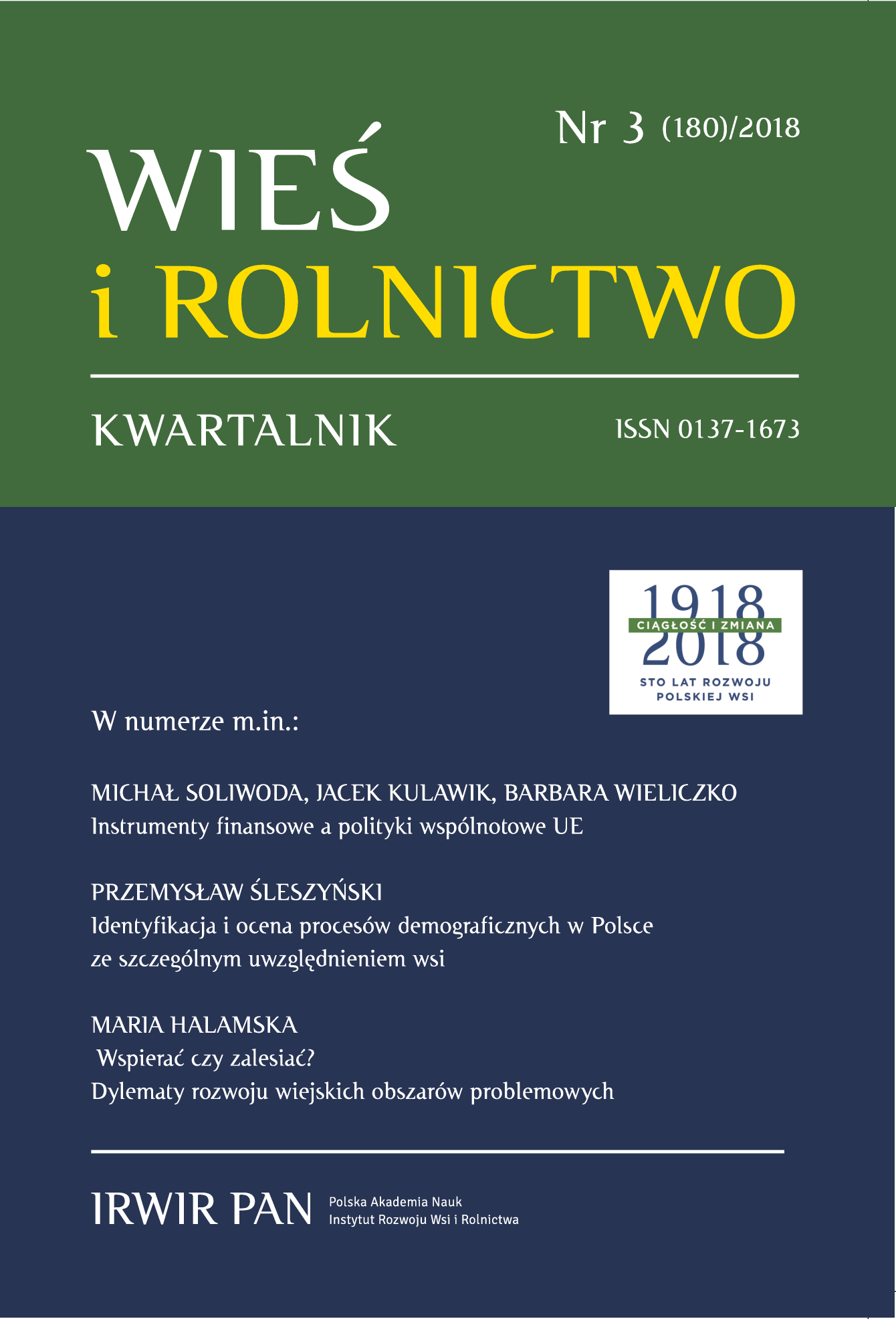Problem ubóstwa i wykluczenia społecznego w krajach Unii Europejskiej w kontekście zrównoważonego rozwoju
The Problem of Poverty and Social Exclusion in the European Union Member States in the Context of Sustainable Development
Author(s): Sławomir KalinowskiSubject(s): Politics, Law, Constitution, Jurisprudence, Agriculture, Sociology, Socio-Economic Research
Published by: Instytut Rozwoju Wsi i Rolnictwa Polskiej Akademii Nauk
Keywords: rural areas; at-risk-of poverty rate; social exclusion; sustainable development
Summary/Abstract: This paper addresses the poverty risk issues in the context of sustainable developmentof rural areas. Empirical materials included in this paper are based on EU-SILC(European Union Statistics on Income and Living Conditions) partial studies, and provide a reference point for comparing the EU income distribution and social integration statistics.Poverty reduction and counteracting social exclusion are among the key Millennium Development Goals. According to the studies, one in four inhabitants of the EU rural areasis at risk of poverty or social exclusion. While the highest shares of at-risk population arerecorded in Bulgaria (54.8%) and Romania (50.8%), the levels reported by Poland andLithuania are also above the EU average (by 4.5 and 9.2 percentage points, respectively).At the other end of the spectrum, the risk rate in the Netherlands and the Czech Republicis 12.8%. For the households, income is a factor underpinning their economic safetyand, their confidence as a result. The amount of income affects the objective povertylevels measured with a parametric method. In the EU, people earning no more than 60%of the national median income are assumed to be at risk of poverty, which means thatthe risk of pover ty affects nearly every fifth rural inhabitant of the EU. Poverty and socialexclusion are multi dimensional aspects which result in unsatisfied needs in multiple areas:healthcare, education, housing, culture and leisure. While triggering some kind of feedbackloop, insufficient income is both the cause and the effect of deprivation of needs. Also, itprovides favorable conditions for an unsustainable development of rural areas.
Journal: Wieś i Rolnictwo
- Issue Year: 180/2018
- Issue No: 3
- Page Range: 93-112
- Page Count: 20
- Language: Polish

